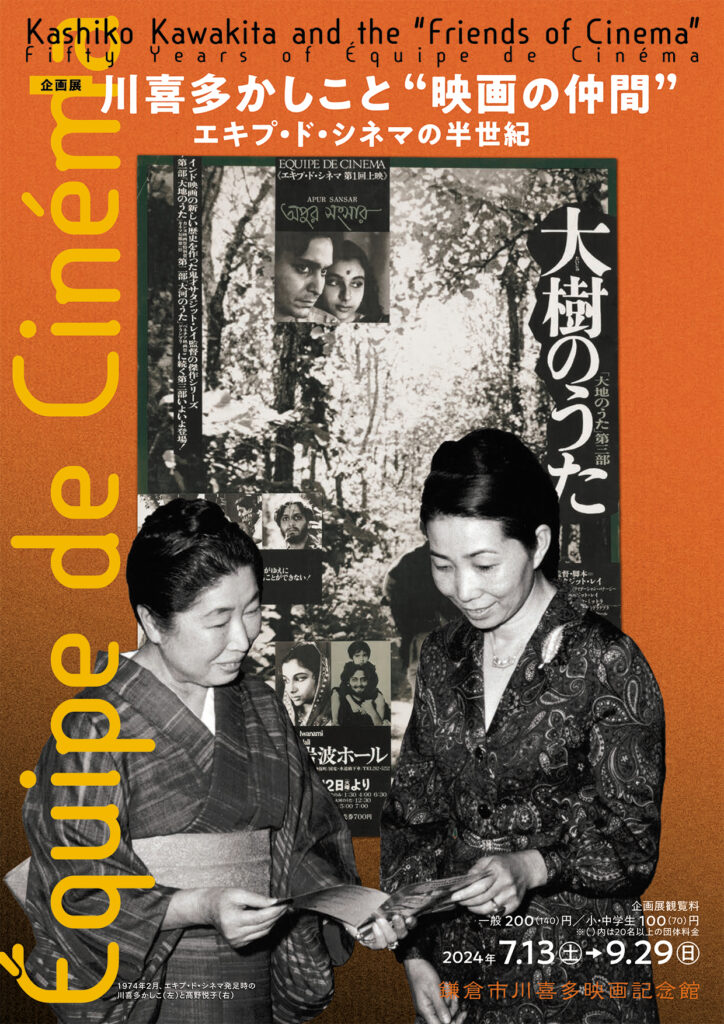Kashiko Kawakita and the “Friends of Cinema”: Fifty Years of Équipe de Cinéma

Équipe de Cinéma, the brainchild of Kashiko Kawakita and Etsuko Takano, was inaugurated on February 12, 1974 with the Japanese screening of Satyajit Rayʼs The World of Apu (1959), and subsequently garnered the support of enough film lovers over the years to develop into a major screening movement. Founded as a movement aimed at the “discovery and screening of hidden cinematic masterpieces from around the world,” Équipe de Cinéma ( “Friends of Cinema” ) operated out of Tokyo mini-theater Iwanami Hall, serving as a cornerstone of Japanʼs film culture for close to half a century. Currently, despite its founding members having since passed away and Iwanami Hallʼs closure in 2022, the movementʼs spirit has been taken up by many of those for whom it once served as a source of inspiration.
This exhibition charts the many achievements of Équipe de Cinéma, a pioneering presence in the world of mini-theaters and the “single-cinema road show” (in which a single mini-theater became the only place showing a particular film), while also introducing some of the cinematic masterpieces collected from around the world over its near fifty-year run.
What did Équipe de Cinéma do?
Founded under the banner of the four goals below, the Équipe de Cinéma movement successfully pioneered several initiatives that had never before been seen in the world of Japanese commercial film distribution.
By the time Iwanami Hall shut its doors on July 29, 2022, the movement had screened 274 works from across 66 countries and regions.
1. Introduce new films from large swathes of the world, including Asia, Africa, and Latin America, whose works had gone relatively unscreened in Japan.
2. Screen “left-behind” European and American works that major entertainment companies showed little interest in acquiring.
3. Screen historical masterpieces that had yet to receive a release or had only ever been shown in Japan in incomplete form.
4. Support efforts to bring high-quality Japanese films out to the world.


